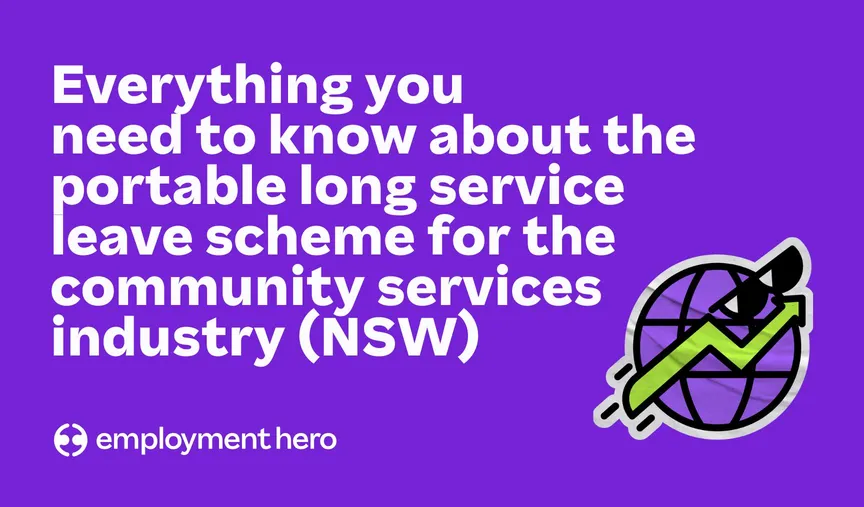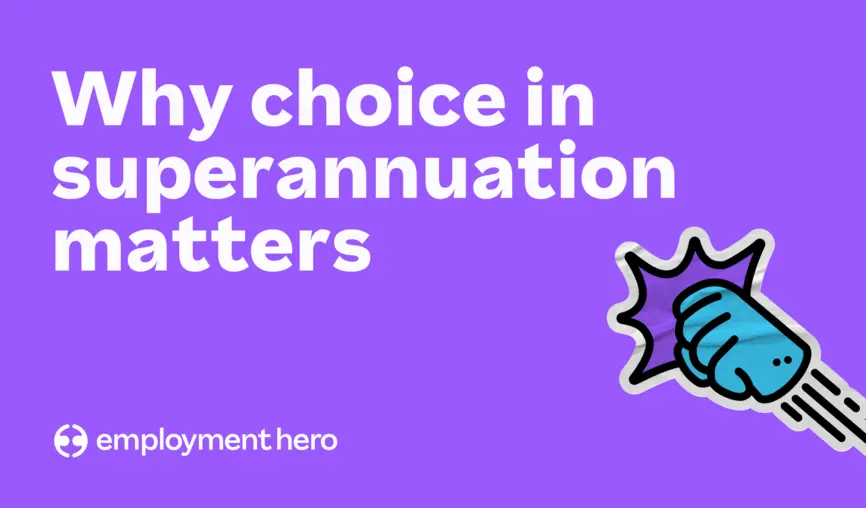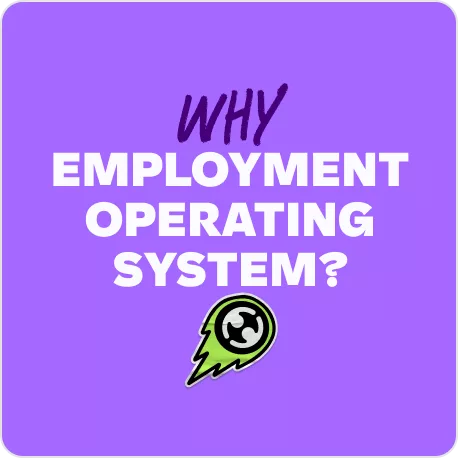Closing Loopholes Bill part 1: Your questions, answered
With Simon Obee, Principal Lawyer at EI Legal, General Counsel & Head of Professional Services at Employment Innovations

Contents
Late last year, the Australian Federal Government passed part 1 of the Closing Loopholes Bill, sounding alarms through the local business community. With a slew of new measures introduced, it’s no surprise that questions were raised. If you haven’t already accessed our response resources, please take a moment to review them:
- Watch the Closing Loopholes Part 1 webinar, presented by employment lawyers Simon Obee and Sanam Ahmadzadeh Salmani
- Download the Closing Loopholes Part 1 factsheet
During our webinar session, questions poured in and we promised to answer as many as we could. Off the back of this, we’ve developed this Q&A, with sections based on key employment themes. To make it easier for you to find your answer, follow the quick links below IntroductionHow are business leaders feeling about the Closing Loopholes Bill part 1?Family and domestic violence leaveParental leaveAnnual shutdownsFixed term contractsLabour hire – “Same job, same pay”Workplace delegatesFirst responders and PTSD workers’ compensation claimsRequest to work on a public holidayCriminalisation of wage theftCasual conversionPay secrecyMiscellaneous
Disclaimer: The information in this article is relevant as at 9 February 2024, and has been prepared by Employment Hero Pty Ltd ABN (11 160 047 709) (Employment Hero). The views expressed herein are general information only and are provided in good faith to assist employers and their employees. The Information is based on data supplied by third parties. While such data is believed to be accurate, it has not been independently verified and no warranties are given that it is complete, accurate, up to date or fit for the purpose for which it is required. Employment Hero does not accept responsibility for any inaccuracy in such data and is not liable for any loss or damages arising either directly or indirectly as a result of reliance on, use of or inability to use any information provided in this article
Introduction
Thank you to Simon Obee, Principal Lawyer at EI Legal, General Counsel & Head of Professional Services at Employment Innovations for his ongoing partnership and time on this Q&A. The Closing Loopholes Bill part 2 is likely to pass very soon. We’ll make sure to keep you updated on developments as they happen. Keep an eye on your inbox and follow Employment Hero on social media for updates. We know employment legislation is often overwhelming. It can be confusing, scary and frustrating to navigate – especially if you don’t have access to experts or a handle on the right processes. Employment Hero HR software was created by ex-employment lawyer, Ben Thompson, to provide better peace of mind for employers. We genuinely want to give you the confidence to grow your business knowing your compliance is managed. If you’re looking to switch employment software providers or simply want to find out more about us, get in touch today.
How are business leaders feeling about the Closing Loopholes Bill part 1?
During the webinar, we asked the community a few questions surrounding the bill. From these questions, we can determine that although business leaders are generally supportive of the changes, they are overall more likely to feel unsure and a massive 44% believe these changes will increase mounting pressure on their business. Here’s what you had to say; Q1. Are you supportive of the parts of the Bill that have been passed? (520 respondents) 40% Yes 15% No 45% Unsure Q2. Do you support the parts of the Bill that have been proposed but not yet passed? (455 respondents) 27% Yes 24% No 49% Unsure Q3. Based on this information, how do you feel about the pressures you and your business face in 2024? (346 respondents) 13% It will get better 44% It will get worse 42% Unsure
Family and domestic violence leave

Q. I understand domestic violence leave, but what is family leave? A. The leave is called “family and domestic violence leave” (to capture violence perpetrated by a family member or in a domestic setting (eg. by a member of the household)). The entitlement for all employees (including casuals) is up to 10 days paid leave per year of employment. The leave does not carry over from year to year, but a new 10 days leave is available each year. For further information, read this. Q. I’d like to understand the 10 days of paid family and domestic violence leave for casuals. We usually pay casuals 25% on top of the regular hourly rate to cover any sort of leave. Will this need to be increased based on the 10 extra days? A. Casual employees are generally entitled to 25% loading to cover certain entitlements associated with permanent employment that they don’t receive (eg. paid annual leave, paid personal/carer’s leave, etc). The entitlement to 10 days of paid family and domestic violence leave is separate from this. You cannot increase their loading instead of providing them with this paid leave entitlement. For completeness, we note that casuals are also entitled to paid long service leave. Q. Re: Casuals and paid family and domestic violence leave – is it 10 full days regardless of casual hours? A. Casuals are entitled to 10 days paid family and domestic violence leave, but the payment they receive is based on the hours they would have worked in the period that they take family and domestic violence leave.
Parental leave

Q. With regards to parental leave – can an employee take one day a week off for 24 months? A. Following recent amendments to the law, up to 100 days of parental leave can now be taken “flexibly” (eg. a day or more taken at a time, which can be before or after the employee has taken a longer block of continuous parental leave, or instead of continuous parental leave), up to the child’s second birthday. This can therefore be taken after the employee has returned to work after a “regular” period of parental leave (or before going off on the regular period of leave). An employee could opt to use the full entitlement of flexible days to take a day off a week for 100 weeks (this would equal 100 days of leave). See further information in this blog.Q. The additional 100 days of flexible parental leave, I assume that’s unpaid leave? A. Yes. Q. Is the 20 weeks of paid parental leave entitlement under the Government part of a paid parental leave scheme or is that a minimum requirement as an employer? If we do not work under an award, what is the minimum we have to provide to the secondary carer? A. The entitlement to 20 weeks of paid parental leave is an entitlement from the Government. There is no obligation for employers to make any additional form of paid parental leave unless they wish to. The entitlement to unpaid parental leave is now the same whether the employee is the primary or secondary carer – an employee just has to have some responsibility for the care of the child. See this blog for further details on changes to parental leave generally, and this one specifically on the Government-funded paid parental leave entitlement. (NB. this blog references an entitlement to 30 days of flexible parental leave but this entitlement has now risen to 100 days).
Annual shutdowns

Q. If an employee agrees that an annual shutdown will be unpaid leave, is this ok? This was agreed as the employee wanted to take time off prior to the end of the year, which left the employee with no leave remaining for the shutdown. A. Yes – if an employee agrees to take unpaid leave that is fine. The recent changes to the law prevent an employer from requiring (ie. forcing) an employee to take unpaid leave without the employee’s agreement – read more here. Q. If an employee does not have any leave accrued how do you manage annual shutdowns with that employee? A. There are a couple of options – you could either agree with them that they take a period of unpaid leave or you could agree with them to take annual leave in advance of them accruing it (ie. let them go into a negative balance). Most awards allow for this, and it is also permissible for award-free employees. It would also be possible (although probably undesirable) to make them work during this period and pay them as normal. Going forward you could implement a system where employees had to save enough annual leave throughout the year to make sure they had enough to cover the shutdown. Please also see this blog for further guidance.Q. Are the annual shutdown provisions also applicable for newly hired employees? Eg. if an employee was hired in early December and the company has a holiday break from 22 December to 4 January. A. Yes – the new rules apply to newly hired employees. This can be a challenge as the employee may not have accrued sufficient annual leave to cover the period of the shutdown. See above for some options that can be used in these circumstances. Q. Can we have staff go into a negative leave balance during forced shutdown periods or do they use their sick leave if no annual leave is available? A. It would be possible to agree with an employee to take leave in advance (ie. go into a negative balance) so long as this is permissible under any modern award that applies to them (most modern awards allow for this, as does the Fair Work Act for award-free employees). It would not be possible to require an employee to use their sick leave if they were not in fact sick. Q. If an employer gives reasonable notice of a Christmas shutdown of two weeks (three months notice) and the employee still does not have enough leave, can it be unpaid leave? A. The period of notice required for an annual closedown will be set out in the applicable modern award, if the award allows for a closedown. For award-free employees, the period of notice will be whatever is reasonable. Regardless of the notice period given, an employee cannot be required to take unpaid leave. This would only be possible by agreement with the employee. Q. Can you please confirm if it is just award employees who can’t be forced to take unpaid leave in a shutdown, and that award-free employees can be forced to take unpaid leave? A. Neither award covered or award-free permanent employees can be required to take leave without pay during an annual shutdown. This would only be possible with the employee’s agreement.
Fixed term contracts

Q. My question is about the two-year limit on contracts – has there been an update on employees on work or bridging visas? A. There is no specific exemption to the new rules for fixed term contracts for employees on visas. However, we consider that it would likely be a valid reason to terminate an employee’s indefinite employment contract if they failed to hold a visa that entitled them to continue to work in Australia. There may, of course, be another exemption you could rely on (eg. an employee doing specialist tasks, high-income employee, etc). For general guidance on the new rules, please see this article.Q. Can I clarify whether the ruling applies exclusively to new fixed term contracts and not to existing ones? For instance, if we currently have an individual on a one-year contract, does this imply that we have the option to extend it for an additional two years? A. The new rules took effect from 6 December 2023. If you have an employee on an existing fixed term contract then the rules will “bite” when that contract expires and you come to consider renewing it. If it expires after 6 December 2023 you would only be able to renew it once (if it hadn’t been renewed before), but only if the total length of the contract would be two years or less. So, in short, you will not have the option to extend it for an additional two years, unless one of the exemptions detailed in the blog above applies, as the previous one year of the contract will be counted. Q. If the first contract started before December 2023, is it relevant to the new rules and does it count as the first contract? Or do the rules only apply to contracts made after they took effect? A. As above, the new rules take effect from 6 December 2023. For contracts made before this date, the new rules will “bite” when the contract expires. So when you come to consider renewing a pre-December 2023 contract, you will only be able to renew it once, and only if the total length – including the earlier period – is less than two years. Unless, of course, you can rely on an exemption. Q. Can an employer hire an employee on a three-year fixed term contract if the role is for a project that is funded by a three-year government grant? A. The exemption would apply only if there was no reasonable prospect of the funding being renewed. Just because it is government-funded does not allow long fixed term contract arrangements of itself – it is only when you know the funding will not be renewed at the end. Q. We have several funded projects that we have usually employed fixed term staff for. Will this still be possible? A. As above, the exemptions only apply to government-funded projects where there is no reasonable prospect of the funding being renewed. If that is not relevant to your situation then you would need to look at one of the other possible exemptions if you wanted to engage employees on fixed term contracts for more than two years or renew their contracts more than once. For example, it might be that you could rely on the exemption regarding engaging specialists with unique skills, or the exemption for high-earning employees, etc. Q. Is the exemption only for government grants? What about project grants from trusts or other bodies? A. Aside from the exemption for government-funded positions (where funding has no reasonable prospect of being renewed), additional exemptions have recently been granted for;
- fixed term contracts for positions that are funded (in whole or part) by particular philanthropic entities or by testamentary gift or contribution, where the funding is for more than two years and it is unlikely the funding will be renewed afterwards.
- these limitations don’t apply to these contracts entered into on or after 6 December 2023 and before 1 July 2024 where the funding is provided either by:
- A philanthropic entity registered under the Australian Charities and Not-for-Profits Commission Act 2012, or
- As a testamentary gift or contribution to a philanthropic entity for a charitable purpose (within the meaning of the Charities Act 2013), and the employer or person who entered into the contract with the employee is not an associated entity of the philanthropic entity.
Please contact EI Legal for further advice. Q. Does the limitation of fixed-term contract rules apply to contractors? A. No, only to employees. Q. You referred to the high-income employees exemption – were you referring to contractors? A. No. There is an exemption from the rules which means that an employee can be given a fixed term contract for a period of over two years, or have the contract renewed more than once if the employee earns over the high income threshold. This is currently set at $167,500 (excl super) per year.
Labour hire – “Same job, same pay”

Q. With the labour hire changes, are long-term labour hire employees entitled to quarterly bonuses if the permanent employees performing the same role receive them? A. The legislation appears to provide that where the Fair Work Commission makes an order under the new provisions, it will operate so that the labour hire employee must be paid no less than they would have been entitled to have been paid if they were subject to the host employer’s enterprise agreement. If the enterprise agreement provided for quarterly bonuses, then it would appear that these should be paid to the labour hire employee too. However, if the bonuses were being provided as a discretionary payment over and above the requirements of the enterprise agreement it would appear that they wouldn’t be caught by the new provisions. The wording of the legislation is not entirely clear in this regard and we would encourage you to contact EI Legal for further advice. Q. Regarding the labour hire change, would this provision apply to offshore labour hire as well? A. It would only apply to “national system” employers and employees covered by the Fair Work Act 2009. This would not generally capture overseas businesses, but could do in certain circumstances. We would encourage you to contact EI Legal for further advice. Q. So if the employee can ask the question about matching an enterprise agreement rate, can the labour hire company say no? A. How the legislation is set up is that a labour hire employee who thinks they should be paid in accordance with a host employer’s enterprise agreement can make an application to the Fair Work Commission. The Fair Work Commission would then decide whether to order that they should be paid this rate. The labour hire business would be able to make representations about this but once the order was in place, the labour hire company would need to comply with it (or else appeal to a court, etc). Q. Regarding “Same Job, Same Pay”, are the FWC orders made for solely one labour hire agency or can a business arbitrage between labour hire agencies to avoid the FWC order? A. Generally, an order would name a specific labour hire employer, although the Fair Work Commission could name more than one employer or make multiple orders. There are also provisions in the legislation which deal with anti-avoidance. We would encourage you to contact EI Legal for further advice. Q. I have read that there is a ‘training arrangement’ exemption to the Closing Loopholes Bill labour hire legislation. Are you aware of whether this means that EBA companies are still able to hire group training apprentices (labour hire arrangement) who are paid at award rates, or would this now mean that loophole would be closed and EBA apprentice hosts would also need to pay as per their EBA’s apprentice rates? A. You’re right – apprentices are “carved out” of the new legislation. This means that an apprentice employed by a labour hire company would not need to be paid the same as an apprentice employed by a host employer would be under their enterprise agreement. Q. Regarding labour hire changes, do you have to look at matching other entitlements i.e. leave, etc? A. No – it is just in relation to rates of pay. Q. Can a business employ people on full-time contracts within one separate section of a business and have them embedded by a host section on a reduced salary where the host section already has an EA where anyone covered by those terms and doing the same work would receive a higher salary? A. We would need more information to comment on this further – please contact EI Legal for further advice.
Workplace delegates

Q. Is there a maximum number of delegates to workers ratio? Eg. if there are 30 workers in a group but only one union is represented, is there a limit on how many delegates can be selected? A. There is no limit in the legislation regarding the number of workplace delegates that can be appointed. This is one of the criticisms of the new legislation. It remains to be seen whether, if excessive numbers were appointed, an employer could restrict their activities on grounds of reasonableness – eg. by saying it is unreasonable to have multiple delegates in one meeting. We consider it likely that an employer could rely on reasonableness grounds in these circumstances. Q. Can each union only have one workplace delegate? A. As above, there are no limits in the legislation about the maximum number of delegates that can be appointed. Therefore, this does not limit the appointment to one per union. Q. Do the workplace delegate rights apply to casuals as well? A. Yes – a casual could be appointed as a workplace delegate (and casuals would also have a right to be represented by a delegate). Q. Is it a requirement for a workplace to have a workplace delegate? What if we don’t have any? A. There is absolutely no requirement to have a workplace delegate. Practically speaking a workplace delegate is only likely to be appointed where there is a union presence in the workplace. Q. Do those delegate changes apply to appointed reps from unregistered unions or industrial associations? A. The provisions only apply to delegates of registered unions. Q. How is a union delegated ‘appointed’ by the union? How does the employer know if the delegate has been ‘appointed’ or not? A. The legislation just refers to “a person appointed or elected, in accordance with the rules of an employee organisation, to be a delegate or representative (however described) for members of the organisation who work in a particular enterprise”. Each union will have its own rules about how a delegate is appointed so there is considerable flexibility here. There is nothing specific in the legislation about providing proof of the delegate’s appointment. However, as the provisions are all drafted in terms of “reasonableness” we consider it likely that it would not be unreasonable for an employer to restrict an employee from exercising delegate duties until the employer had been given reasonable proof that the employee had been so appointed. Q. What evidence can we ask for that shows that they have that role? A. As above, we consider that you would be able to ask for reasonable evidence, e.g. a letter from the union. Q. Workplace delegates – are they only relevant to award covered employees? A. No. The new rules apply to all employers/employees. There will be more specific rules introduced into Modern Awards for workplace delegates (which add to the existing rules) by 30 June 2024. Q. Surely there should be a limit on the number of “work” hours allowed for a workplace delegate union rep? A. Yes – they will only be able to perform the work insofar as is reasonable. What is reasonable will be impacted by the size of the business. There will not be a uniform limit on hours which applies the same across all businesses. Q. Are we ok to ask prospective employees if they belong to a union during the recruitment procedure? A. We would advise against this – if you are told a prospective employee is a member of a union and you then decide not to hire them, you may find it difficult to establish that the reason for not selecting them was not related to union membership. Discriminating against someone on the basis of union membership is against the law.
First responders and PTSD workers’ compensation claims

Q. Is there a definition of first responders? A. Yes – the legislation lists the following:
- Commissioner of the Australian Federal Police
- Deputy Commissioner of the Australian Federal Police
- Australian Federal Police employee
- Firefighter
- Ambulance officer (including a paramedic)
- Emergency services communications operator
- Member of an emergency service (within the meaning of the Emergencies Act 2004 (ACT))
- Australian Border Force Commissioner
- APS employee in the Australian Border Force
The Government has powers to add to this list. Q. Would a veterinarian be considered a first responder? A. No – not at present. See above. Q. Would “first responder” also apply to trained first aiders who are a first responder to an injury during work hours? A. No – not at present. See above. Q. Can I ask regarding the automatic acceptance of PTSD workers’ compensation claims for frontline workers, will this operate similarly to the exemptions for some categories of health workers in respect of contracting COVID during the pandemic? A. In essence, the new provisions work so that where a first responder contracts PTSD there is a rebuttable presumption that this was caused by work. Usually, an employee would have to prove that work was the cause of the injury, whereas in this case it will be presumed (unless proved otherwise).
Request to work on a public holiday

Q. In regards to public holiday work, if the employee is a shift worker and is scheduled to work on a public holiday, do you still need to ask the employee to work as it’s a scheduled work day on their roster? A. Yes you do – the court made this clear in their decision in this matter. They said: “The Court does not accept the submission that the Union’s interpretation would be inherently unworkable because such an interpretation would mean that an employer could not ever have a roster which included working hours on Christmas holidays or ever contain a contractual requirement. An employer can have a roster which includes public holidays. All that is required is that an employer ensures that employees understand either that the roster is in draft requesting those employees who have been allocated to the holiday work that they indicate whether they accept or refuse that allocation, or where a request is made before the roster is finalised. Similarly, a contract may contain a provision foreshadowing that the employees may be asked to work on public holidays and may be required where the request is reasonable and a refusal unreasonable.” Keep reading here.Q. Public holiday requests to work, how should we record that the employees have been asked and they agree? A. There is no set format for this, but best practice would be to ensure there is some sort of written record, this could be through:
- An exchange of emails/text/messages/letters
- A draft roster which the employee has signed or electronically accepted including through an application like Employment Hero
- A form (which could be sent digitally) that you ask the employee to sign/accept
Criminalisation of wage theft

Q. Is it the safe harbour provision coming in on 1 January 2025 or is it the criminalisation of wage theft? Is there information on unintentionally underpaying? A. The date the new wage theft provisions will come into force is not yet set, it will come into force the later of: 1 January 2025; or the day after the Minister declares a Voluntary Small Business Wage Compliance Code (which will contain safe harbour provisions for small businesses), the date for which has (again) not yet been set. There are general safe harbour provisions (for all sizes of businesses) in the wage theft legislation (for when the business self-reports an underpayment), which will come into force on the same date as the rest of the legislation. There is no specific guidance yet on intentionally v unintentionally underpaying (only the former will be caught by the new provisions). However, in general terms, to be found guilty of the offence the prosecution would need to prove beyond reasonable doubt that the employer intentionally failed to provide employees their minimum statutory entitlements. The Explanatory Memorandum to the Bill stated: “…underpayments that are accidental, inadvertent or based on a genuine mistake are not caught by the provision. For example, if an employer genuinely misclassifies an employee and pays them an hourly rate of $25 per hour instead of $30 per hour (for the correct classification), the resulting failure to pay the required amount ($30 per hour) was not intentional and would not be caught by the provision. If, however, an employer paid an employee $10 per hour, knowing it was below the minimum wage, the resulting failure to pay the required amount (whatever it may be) would be intentional, and caught by the provision. Exact knowledge of the required amount (to a dollars and cents value) would not be required to establish the offence.” Further guidance is expected prior to the provisions coming into force. Q. Does wage theft cover issues from that date onwards, or does it look backwards and apply the new provisions? A. As a general rule, federal criminal offences cannot be retrospective in operation, therefore these provisions are unlikely to catch past underpayments
Casual conversion

Q. If you have to back pay an employee leave (because they were engaged as a casual, but later found to be a permanent employee) can you take back the casual loading? A. The Fair Work Act currently contains an ability for the Fair Work Commission to make an order that any casual loading paid to be “offset” against any claims for backdated entitlements, where the Fair Work Commission considers it appropriate to do so. In order to be able to rely on these provisions the employees’ contracts should make clear that the purpose of the loading is to compensate the employee for not being provided with such entitlements. Template employment contracts available through Employment Hero and Employment Innovations include such wording. Q. How does casual conversion work with interns – for example; an undergraduate law student working casually for more than 6 months? A. A summary of the current obligations re: casual conversion is available here. Such an employee would have a right to be offered / request conversion to permanent employment after 12 months service (if they had been working regularly for at least the last 6 months). This could be avoided if there was a business ground they could not continue as a permanent employee (e.g. the role was no longer available). Under the proposed changes (currently before Parliament) a casual employee would get conversion rights after 6 months (or 12 months in a small business). A casual employee wishing to convert could only be refused on much more limited grounds, e.g. where it was not possible to work their working pattern as a permanent employee without breaking a workplace law. We will provide further information on the proposed changes as the Closing Loopholes Bill No. 2 progresses through Parliament. Q. Can you share some of the grounds that employers will have to refuse casuals converting to permanent if the Closing Loopholes Bill No. 2 goes through? A. There are proposed to be only three grounds: (a) the employer considers the employee still meets the new definition of casual employment that will be set out in the Fair Work Act (i.e. that the employment relationship is characterised by an absence of a firm advance commitment to continuing and indefinite work); or (b) conversion would be impractical because substantial changes to the employee’s terms and conditions would be reasonably necessary to ensure the employer does not contravene a term of a fair work instrument that would apply to the employee as a full-time employee or part-time employee (as the case may be); or (c) (for public sector employees only) conversion would result in the employer not complying with a recruitment or selection process required under a law of the Commonwealth or a State or a Territory. In respect of (a), if, for example, the employer can say the employee is only working irregularly, can refuse shifts that are offered (and in fact does so) and there is no ongoing commitment to provide/accept work – the employer might well be able to object to the employee having a right to convert. The Fair Work Commission would then have to determine the matter, unless agreement could be reached with the employee. See below in respect of (b). Q. Given the proposed changes to casual conversion, is it likely that part-time provisions in Awards may be made more flexible? (Currently most require days and hours to be stated/fixed – making additional hours costly overtime) A. We consider that is unlikely to be the case that part-time provisions in Awards will change. As noted above, there is an exemption in the proposed legislation from the right to convert from casual to permanent employment “because substantial changes to the employee’s terms and conditions would be reasonably necessary to ensure the employer does not contravene a term of a fair work instrument that would apply to the employee as a full-time employee or part-time employee (as the case may be)”. If, for example, a casual employee only ever worked one hour per shift (and this was permitted by the Award), but the Award said that a part-time employee had to be engaged for a minimum of four hours, this might give the employer a ground to rely on the exemption. The proposed legislation therefore already has provisions which deal with any inconsistency between casual and permanent minimum entitlements, so we doubt award provisions will be amended as a result. We have heard no talk of any proposed changes in this regard. Q. For the calculation of 15 or more employees (for assessing whether a business is a small business) is the 15 based on 15 Full Time Equivalents (FTEs) or just the number of employees on payroll i.e. could be 20 employees all working 5 hours per week? A. It is based on the payroll (headcount) number (not FTE). Q. In the proposed legislation, if the employee notifies that they want to change from casual to permanent, does their new hourly rate become their existing casual rate or the rate without the casual loading? A. They would only be entitled to the relevant minimum wage for a permanent employee (i.e. they would lose their casual loading), as is currently the case under existing casual conversion legislation. Q. With the proposed changes, what happens if a casual is employed with a written contract that is true casual (eg. they start employment at the start of the shift and cease employment at the end of the shift), but in actual fact, they are rostered and work regularly and systematically. Will we be able to treat them as a true casual, or are we still at risk of Fair Work looking at the employee as though they are actually a part-time employee? A. Under the proposed changes, the conduct of the parties after the written contract is entered into will be once again relevant to the assessment of whether the employee is a true casual. The fact that the employee may work regular hours is not of itself determinative of whether they are casual or not, but it will be one factor that is considered. The proposed legislation states that other factors will be considered including: (i) whether there is an ability of the employer to elect to offer work or the ability of the employee to elect to accept or reject work (and whether this occurs in practice); (ii) whether, having regard to the nature of the employer’s enterprise, it is reasonably likely that there will be future availability of continuing work in that enterprise of the kind usually performed by the employee; (iii) whether there are full-time employees or part-time employees performing the same kind of work in the employer’s enterprise that is usually performed by the casual employee. The proposed legislation specifically states that: “A regular pattern of work does not of itself indicate a firm advance commitment to continuing and indefinite work. An employee who has a regular pattern of work may still be a casual employee if there is no firm advance commitment to continuing and indefinite work.” Q. What if there is a time limit between employment contracts? That is, can you keep renewing a casual contract many times to avoid permanent employment? A. Under the current legislation, the right to be offered or to request casual conversion only “bites” where the employee has been employed for at least 12 months and for at least the last 6 months has worked in a regular pattern. Similarly, under the new legislation, the right to opt to convert will only apply where an employee with 6 months of employment (12 months for a small business) no longer fits the definition of casual employee (which could be in connection with working regular hours, etc). The fact that the employee has been engaged under multiple contracts with the same employer during the period would not necessarily prevent an employee from not meeting the prerequisites for conversion (it being well-established at law that an employment relationship can continue even where an employment contract terminates). However, if there are significant gaps between the contracts during these periods, the contracts have different requirements re: working hours and the employee has in fact been working infrequently and in irregular patterns, then there may well be grounds to avoid conversion obligations (under both the current and proposed legislation) for the reasons set out above).
Pay secrecy

Q. Pay secrecy – does this mean all employees can share pay info? A. Basically, yes. If they choose to do so (they don’t have to). See our guidance here.
Miscellaneous

Q. As a small business, I don’t have an HR department. Where can I go to find all this information to ensure that I comply, and provide my employees with the correct entitlements? A. Employment Hero and Employment Innovations have a range of products and services that can help you with this – please get in touch and we can see how we can help. Q. Which provisions of new employment law (i.e. the more controversial ones) are to be debated in Parliament in 2024 and did not receive Royal Assent on 14/12/2023? A. The main ones are:
- New definitions of casual employees and independent contractors
- Changes to rules about casual conversion to permanent employment
- A broader test for employers to be guilty of “sham contracting” (classifying someone as a contractor when they should be an employee)
- Increased penalties for breaches of the Fair Work Act generally
- Abilities for certain contractors to challenge unfair contract terms in FWC (contractors who earn less than the threshold)
- Greater right of entry rights for unions (24 hr notice not required when investigating underpayments)
- More rights for “employee-like workers” on digital-platforms and in road transport industries (including power for FWC to set minimum terms, rights similar to unfair dismissal claims)
- A right to disconnect for employees once outside of work hours
Q. What happens if a contractor wishes to remain as a contractor and not a full-time employee? A. Their wish is not determinative of the matter. Whether a worker is a genuine contractor or an employee is ascertained by looking at all the terms of the contract between them. In other words, a worker can still be found to be an employee, even if they wish to be engaged as a contractor. Please see guidance on the employee v contractor test here. Q. For contractors, do you think minimum payment would simply be based on the minimum casual rate in the applicable award should they be an employee? A. It is proposed in the Closing Loopholes Bill No. 2 (currently before Parliament) that the Fair Work Commission will be able to set minimum entitlements for certain contractors (e.g. employee-like workers on digital platforms and those in the road transport industry). We do not know how the Fair Work Commission will approach this, but we consider an approach that sets wages with reference to the minimum wages for employees doing similar work is likely.
Related Resources
-
 Read more: NSW Government introduces Portable Long Service Scheme for the Community Services Industry
Read more: NSW Government introduces Portable Long Service Scheme for the Community Services IndustryNSW Government introduces Portable Long Service Scheme for the Community Services Industry
The NSW Government has introduced portable long service leave for the community services industry. Learn what it is and what…
-
 Read more: Payday Super changes: What we’re fighting to fix and why it matters to you
Read more: Payday Super changes: What we’re fighting to fix and why it matters to youPayday Super changes: What we’re fighting to fix and why it matters to you
Big changes are coming to how superannuation is paid in Australia. Here’s what we’re asking Treasury to seriously consider updating…
-
 Read more: Why choice in superannuation matters
Read more: Why choice in superannuation mattersWhy choice in superannuation matters
What could be coming when Payday Super hits and what Employment Hero is doing about it.











